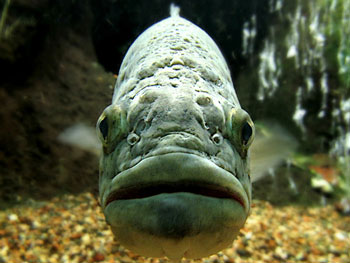Tackle Box Basics: Ten Tackle Box Must-Haves
May 16, 2013Grilling the Perfect Summer Swordfish: Recipe and How To
May 23, 2013There are many different schools of thought about what kind of fishing is better: inshore or offshore. A lot of this has to do with personal preference — whether you prefer to be close to land (or on land) or way out on the wild seas. What kind of fishing you are looking for is also a factor in determining if you want to be closer in or further out. Although very different, both inshore and offshore fishing have their merits, and both make for a great day of fishing, regardless of your personal preference.
Inshore fishing is any fishing that takes place in water up to thirty meters deep. Since the waters are more calm, the requirements for a fishing vessel are less intense, and boats can be very small and basic. In terms of equipment, such as poles, holders, attire, and storage, inshore fishing requires less, as well. Light rods and even small nets can be utilized to catch the large variety of fish that you can find in shallow waters. Some may argue that the downside to this is that, with the lessened hardship, you also lessen the excitement. With less intense boats, gear, and waters, you are more likely than not catching smaller fish. The big trophies — blue fin tuna, shark, and the like — will rarely be found in these waters. If it’s big trophies you are hoping for, offshore fishing may be more your speed.
Once you hit thirty meters deep, you are offshore, in the deep water fishing zone. Here, the boats get more robust, the fish harder to reel in, and the equipment more sturdy. Your small motorboat is traded in for a charter or large fishing vessel, and you are therefore in the running to catch some serious fish. The fishing becomes more athletic and less of a relaxing day out on the boat. (Of course, you can always relax offshore, too … you just may get interrupted with an intense haul.) It’s safe to say that offshore has more variables, more of the unknown, and a lot more potential physical exertion.
Inshore and offshore fishing are vastly different, and both have aspects that make them worthwhile. Although it’s arguable that offshore is more athletic or requires more skill, do not be fooled. Regardless of where you are on the water, you can still find a challenging catch, good eating, and a fantastic time.

